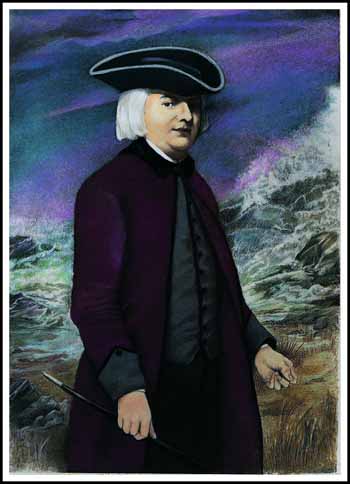English clergyman and theologian William Paley has been described as a theological utilitarian. Paley was author of the influential Natural Theology: or, Evidences of the Existence and Attributes of the Deity, Collected from the Appearances of Nature (1802). Yet the label of "theological utilitarian" can be misleading. Paley thought God wanted us to be happy; but Paley believed that the reason an action is morally right is its conformity with the will of God - rather than the amount of happiness it procures or the misery it minimises.
William Paley
(1743 - 1805)
As evidence of God's kindly attributes, Paley turned to Nature. God's intentions can allegedly best be understood by looking at the living world. Paley claims that "God Almighty wills and wishes the happiness of His creatures"; and adequate motivation must be available in the form a system of future rewards and punishments. However, natural theology has difficulty in explaining the wanton pain and cruelty endemic to life in the animal kingdom. Would a benevolent Creator make cats who "play" with terrified mice before killing them, or internal parasites that eat their hosts alive?
Paley concluded that the good things in life outweighed the bad; but it is hard to reconcile belief in an omnipotent and benevolent God with a cruel and indifferent Nature. To quote Jules Renard, "I don't know if God exists, but it would be better for His reputation if He didn't."
HOME
J.S. Mill
Erasmus
Hedonism
GLOSSARY
John Austin
David Hume
William Paley
Thomas More
Utilitarianism
George Berkeley
Jeremy Bentham
Jesus of Nazareth
Happiness is Back
The Pinprick Argument
dave@bltc.com

